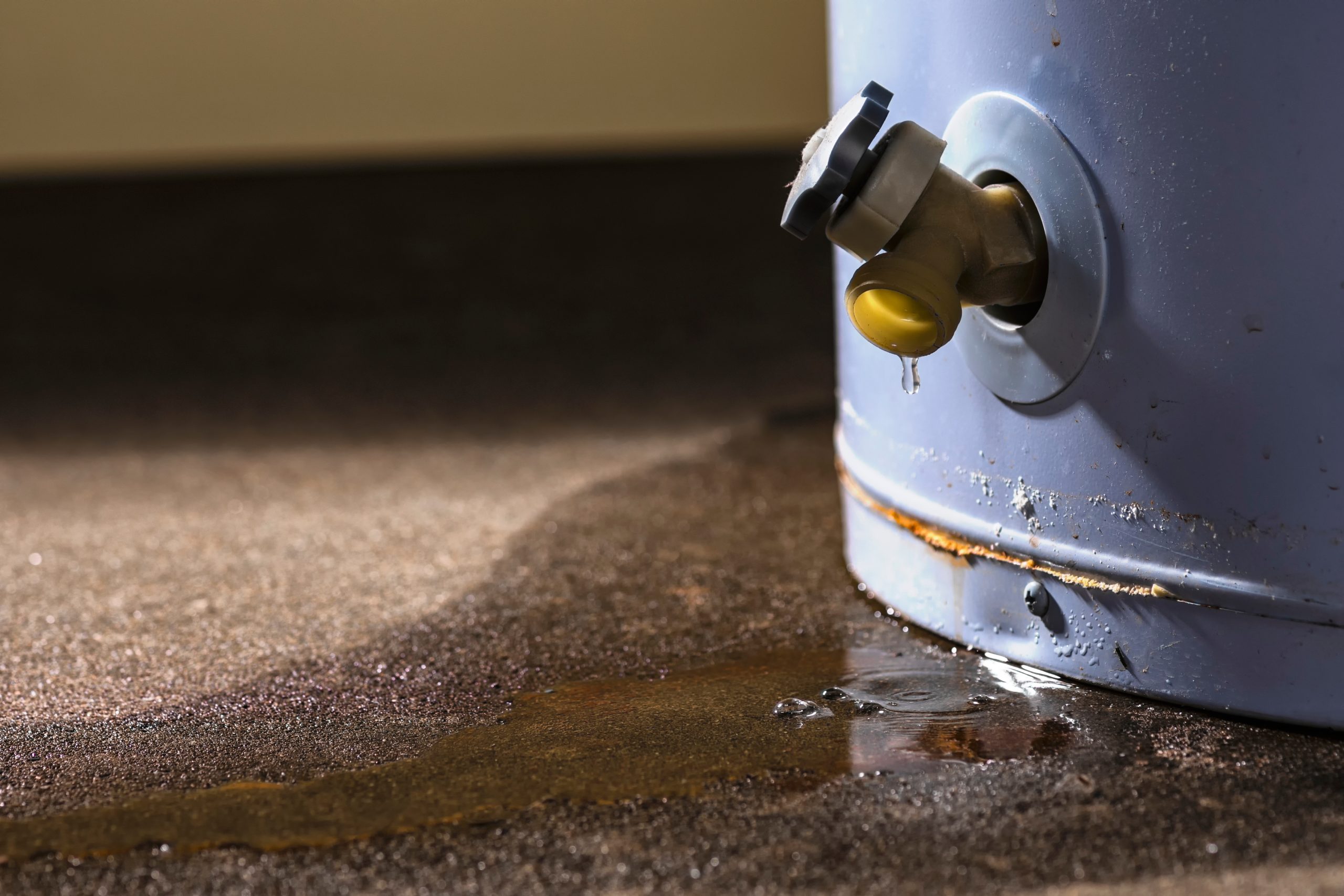Is Your Water Heater Leaking? 6 Signs It’s Time To Call A Plumber
Home /
A leaking water heater can cause significant damage to your home and lead to increased utility bills. When you find yourself asking the question, “Is my water heater leaking?” Clog Heroes in Fredericksburg, VA can help. At Clog Heroes, we understand the importance of addressing water heater issues promptly to avoid costly repairs and maintain the efficiency of your system. In this blog, we’ll discuss how to tell if your water heater is leaking, the common causes of leaks, and what steps you should take if you suspect a leak.
Signs Your Water Heater is Leaking
1. Puddles of Water
One of the most obvious signs of a leaking water heater is the presence of puddles of water around the base of the unit. If you notice water pooling on the floor near your water heater, it’s a clear indication that there is a leak somewhere in the system.
2. Dripping Water
Another sign to watch for is dripping water coming from the water heater or its connections. This could be a slow drip or a steady stream, indicating that water is escaping from the unit.
3. Dampness or Moisture
In some cases, you might not see puddles or dripping water, but you may notice dampness or moisture around the water heater. This could be due to condensation, but it could also be a sign of a small leak that hasn’t yet caused noticeable pooling.
4. Rust or Corrosion
Rust or corrosion on the water heater or its connections is a sign that there might be a leak. Water and metal don’t mix well, and over time, leaks can cause rust to form. If you see rust or corrosion, it’s essential to inspect the area further to determine if there is a leak.
5. Increased Water Bills
If you notice a sudden increase in your water bills without a corresponding increase in water usage, it could be due to a leaking water heater. Even a small leak can waste a significant amount of water over time, leading to higher utility costs.
6. Unusual Sounds
A leaking water heater might produce unusual sounds such as hissing or sizzling. These sounds can occur when water drips onto the burner or other hot surfaces, causing steam or evaporation. If you hear these noises, it’s worth checking for leaks.
Common Causes of Water Heater Leaks
Understanding the common causes of water heater leaks can help you identify and address the issue more effectively. Here are some typical reasons why water heaters leak:
1. Age and Wear
Over time, water heaters can deteriorate due to age and regular use. The internal tank, connections, and components can develop leaks as they wear out. Most water heaters have a lifespan of 8-12 years, so if your unit is older, it might be more prone to leaks.
2. Faulty Temperature and Pressure Relief Valve
The temperature and pressure relief (TPR) valve is a safety feature that releases excess pressure from the tank. If this valve is faulty or not seated correctly, it can cause leaks. Regular maintenance and testing of the TPR valve can help prevent this issue.
3. Loose or Damaged Connections
Water heaters have various connections for water supply and distribution. These connections can become loose or damaged over time, leading to leaks. Regularly inspecting and tightening these connections can help prevent leaks.
4. Sediment Buildup
Sediment buildup inside the water heater tank can cause corrosion and create weak spots that can eventually leak. Flushing the tank regularly can help reduce sediment buildup and prolong the life of your water heater.
What to Do If You Suspect Your Water Heater Is Leaking
If you suspect that your water heater is leaking, it’s essential to take immediate action to prevent further damage. Here are the steps you should follow:
1. Turn Off the Power
First, turn off the power supply to the water heater. For electric water heaters, switch off the breaker in the electrical panel. For gas water heaters, turn the gas control valve to the “off” position. This step ensures safety while you inspect the unit.
2. Shut Off the Water Supply
Next, shut off the water supply to the water heater. Locate the cold water inlet valve on top of the unit and turn it clockwise to close it. This step prevents more water from entering the tank and exacerbating the leak.
3. Inspect the Unit
Carefully inspect the water heater to determine the source of the leak. Look for signs of water around the base, connections, and components. If you can identify the source of the leak, you might be able to perform a temporary fix until a professional can address the issue.
4. Drain the Tank
If the leak is significant, you may need to drain the water heater tank to prevent further water damage. Attach a hose to the drain valve at the bottom of the tank and direct the water to a suitable drainage area. Open the valve and allow the water to drain out.
5. Call a Professional
Finally, contact a professional plumbing service like Clog Heroes in Fredericksburg, VA if your water heater is leaking. Our experienced technicians can accurately diagnose the issue and provide the necessary repairs or replacement to ensure your water heater functions properly.
Summary
A leaking water heater can cause significant problems if not addressed promptly. By recognizing the signs of a leak and understanding the common causes, you can take swift action to prevent further damage. If you suspect your water heater is leaking, don’t hesitate to contact Clog Heroes in Fredericksburg, VA. Our team of experts is ready to assist you with all your water heater needs, ensuring your home remains safe and efficient.

